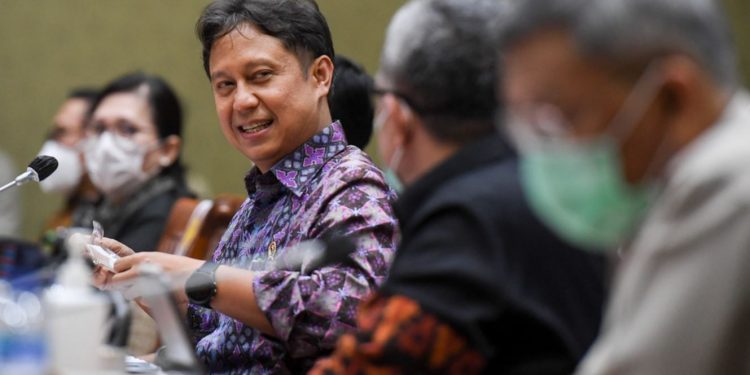IDNAround – The government has drafted a bill that will revolutionize the country’s healthcare system so that it can reach all citizens across the country as mandated by the Constitution, Health Minister Budi Gunadi Sadikin said on Saturday.
“The new law must fulfill people’s rights for adequate healthcare by expanding the access and improving its quality,” the minister said when opening a public discussion on the bill in Jakarta.
“Secondly, the healthcare law must ensure the government’s role and responsibility in providing healthcare services to the people,” he added.
The Covid-19 pandemic has taught a lesson that Indonesia doesn’t have a sound and reliable health system nationwide.
In addition, childhood stunting continues to affect millions of children while hundreds of thousands of people die every year from heart attacks, cancer, and kidney failures, Budi said.
The poor national health system has produced many heart-rending stories, especially from rural and remote areas.
“People in remote areas often have to walk for days or use inappropriate transport means just to get the basic medical treatment,” he said.
On the other hand, the shortage in the number of doctors and medical specialists caused a months-long line of patients waiting for surgeries.
A pregnant mother in Cirebon died recently after being rejected by a hospital due to an over-capacity issue.
“Those are some of the sad stories from our own people that should become a challenge for all of us to improve the Indonesian health system,” Budi said.
The bill to be discussed soon with lawmakers requires several strategies to transform the health system, first by introducing the primary healthcare services focusing on disease prevention and education, the minister said.
Secondly, expand the referral hospital system that reaches all places in the country.
Thirdly, improve mitigation measures and health resilience at a time of health crisis.
Fourthly, simplify health access procedures and the cost-sharing system across the country.
Fifthly, improve the quality of medical workers at all levels to increase their preparedness for current and future diseases.
Lastly, the adoption of the latest medical treatment technologies and digitalization in the health sector.
“We won’t be able to carry out this transformation if the government is not given the mandate according to the Constitution,” Budi said.
Related News: ASEAN Bigger Contributor to Global Economy Than EU









